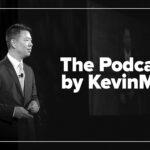Driving through South Dakota after visiting the Badlands, I entered the Pine Ridge Indian Reservation. As a medical student at GCSOM in Scranton, PA, I rarely see Native American communities. I was shocked by the poverty and neglect. How had I never heard of Pine Ridge?
Pine Ridge Reservation was established as a prison camp before a deadly massacre.
Pine Ridge Reservation was established in 1889 as Camp 334 for Indigenous prisoners of war before the 1890 Wounded Knee Massacre where more than 300 Lakota individuals were slaughtered by the U.S. Army. It now houses 18,850 people of the Oglala Lakota tribe in its 2.1 million acres. According to the U.S. 2020 Census Bureau, at least 50.2 percent of residents are under the poverty line, with some sources placing the actual poverty rate at over 80 percent. Within this reservation lie two of the five poorest communities in America—Allen and Wounded Knee—with Oglala Lakota County having the lowest per capita income in the nation at $8,768.
The community faces devastating health disparities.
This alarming poverty is compounded by severe health challenges. The average life expectancy in Pine Ridge is 66.81 years—the lowest in the nation. Common health issues include tuberculosis rates eight times higher than the national average, a teenage suicide rate 1.5 times higher, and diabetes rates eight times higher. Alcoholism impacts 85 percent of families, and cervical cancer rates are five times higher than the national average.
Access to health care remains severely limited.
Despite these striking numbers, one thing was very evident as I was driving through the reservation—there was limited access to health care. Pine Ridge Reservation has three main facilities—Pine Ridge Service Unit, Kyle Health Center, and Wanblee Health Center. Pine Ridge Service Unit only has 45 beds with 16 physicians serving more than 17,000 residents of the Lakota Indian population, Kyle Health Center only has 14 providers, and the Wanblee Health Center employs 42 people with only 10 percent of its funding from federal appropriations (Indian Health Service). In 2017, the Pine Ridge Service Unit lost its Medicare eligibility due to misdiagnoses and inadequate care—one patient’s cancer was mistaken for diabetes, leading to an avoidable amputation.
Physician shortages plague rural and reservation areas.
As the journal America: Equity and Equality in Health notes, “Because physicians are concentrated in cities and affluent suburbs, many Americans living in rural areas find it difficult to obtain primary and specialty care.” This challenge is even more acute on reservations like Pine Ridge, where historically marginalized populations face severe barriers to care. Pine Ridge exemplifies the urgent need for accessible health care, given the high levels of poverty, intergenerational alcoholism, and inadequate primary care.
Infrastructure and cultural challenges limit care delivery.
Beyond physician shortages, systemic barriers prevent adequate care. Transportation is a significant challenge, as Pine Ridge spans a vast rural area with limited public transit. Many residents must travel hours for specialty care, an insurmountable obstacle for those without vehicles. Cultural and historical mistrust further deter individuals from seeking medical help, a legacy of systemic neglect and mistreatment by government agencies.
Mental health services are critically under-resourced.
Moreover, mental health services are severely lacking. With high rates of PTSD, depression, and substance abuse linked to historical trauma and persistent poverty, the need for accessible psychological support is critical. Yet, the reservation has few mental health professionals. Suicide prevention programs are limited, and many individuals who need treatment go without it.
Medical education programs must support rural and Native health.
As an Abigail Scholar at GCSOM—a program funding tuition in exchange for a commitment to rural health care—my visit to Pine Ridge reinforced the value of such initiatives. While programs like the University of Washington’s Indian Health Pathway (IHP) support Native students in providing culturally competent care, more pathways are needed for non-Native students to engage in reservation health care. The Targeted Rural Underserved Track (TRUST) at the University of Washington and the American Indian Medical Experience (AIME) in Montana immerse students in rural medicine, yet none match the Abigail Scholar program’s full tuition support for a service commitment.
Incentivizing providers can help bridge gaps in care.
Expanding initiatives like GCSOM’s Abigail Scholar program could foster health care accessibility in Native communities while training future providers. Creating federally funded programs to incentivize physicians and medical students to work on reservations could be a transformative step. By offering tuition reimbursement, loan forgiveness, or competitive salaries, more health care professionals might be drawn to serve in these high-need areas.
Curriculum and clinical exposure must include Native health disparities.
Educational institutions must also play a role in raising awareness of these disparities. Medical schools should incorporate rural and Native health disparities into their curriculums, ensuring that future physicians understand the unique challenges these communities face. Clinical rotations in Native reservations should be expanded, allowing students firsthand experience in these underserved areas.
Lasting change requires collaboration and policy reform.
Collaboration between Native leaders, policymakers, health care institutions, and advocacy groups is essential for lasting change. Policymakers must listen to the voices of Native communities and involve them in decision-making processes to ensure culturally appropriate solutions. Greater public awareness and advocacy can pressure government agencies to take meaningful action and allocate necessary resources.
Pine Ridge highlights the urgent need to address systemic neglect.
The health care crisis at Pine Ridge is not an isolated issue—it reflects broader systemic failures affecting many Native American reservations. These communities have endured decades of neglect, and without significant intervention, the cycle of poor health outcomes will persist. As medical professionals, students, and policymakers, we must commit to addressing these inequities, not just as a matter of policy but as a moral obligation.
Equitable health care must not leave Native communities behind.
Expanding and funding programs like the Abigail Scholar initiative, strengthening federal commitments to health care infrastructure, and integrating community-led health solutions can begin to repair decades of neglect. The disparities faced by Native American communities deserve national attention and action. If we truly believe in equitable health care, we cannot allow Pine Ridge—and countless other reservations—to remain overlooked any longer.
Advocacy and commitment are essential for justice in Native health.
By recognizing these challenges and advocating for solutions, we take a crucial step toward justice for Native American communities. Addressing the health care crisis in Pine Ridge is not just about improving statistics—it’s about upholding the dignity and rights of an entire population long ignored by the system meant to serve them.
Kaitlin E. Kelly is a medical student.



















